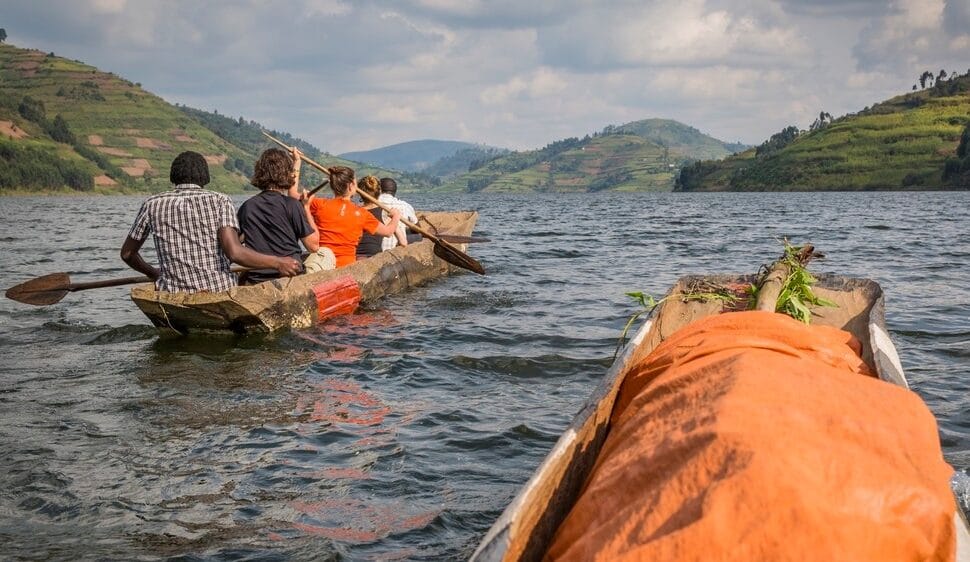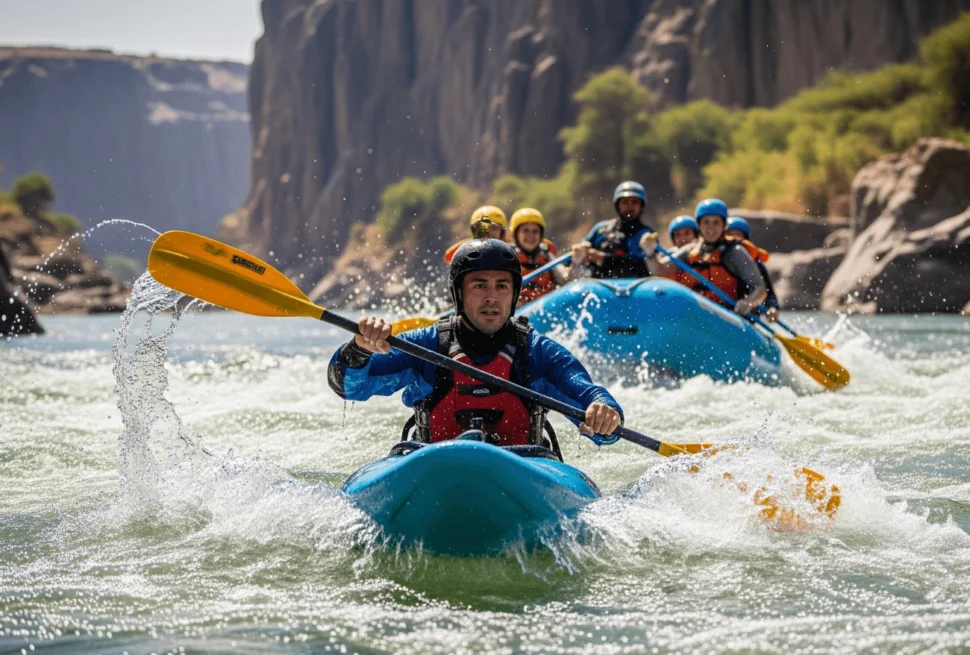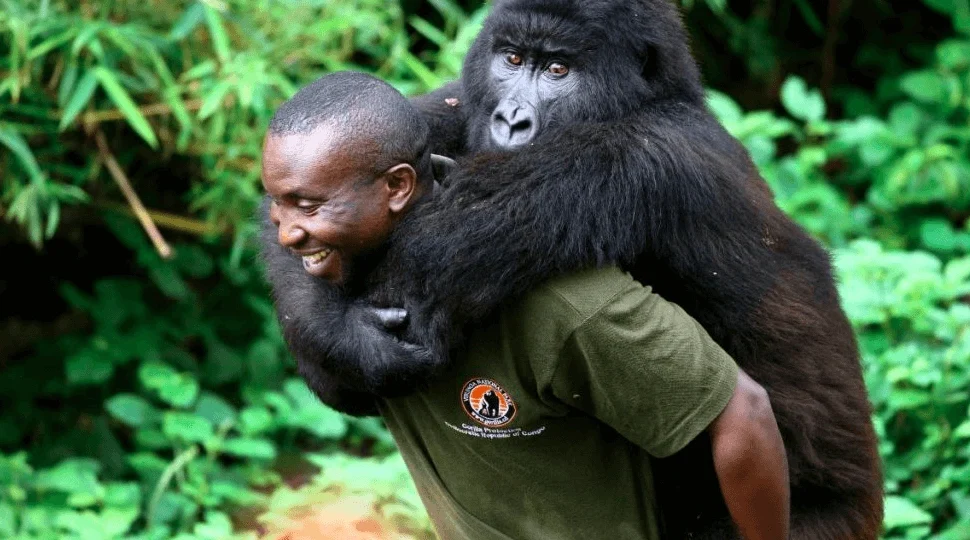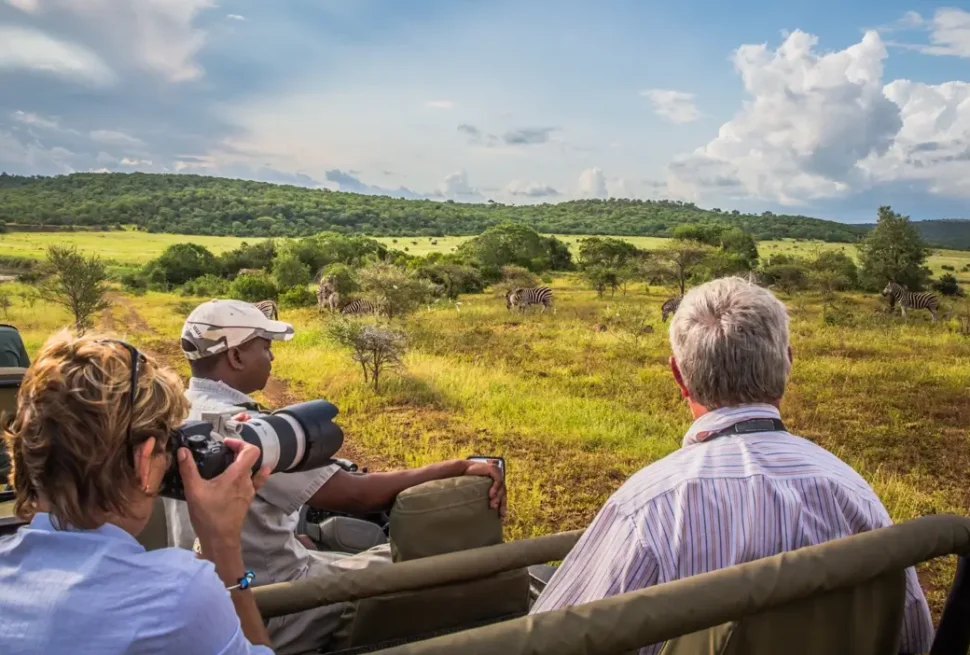“Planning a safari isn’t just about where you go — it’s when you book that can make or break the experience.”
That line was said to me by a camp manager at Lake Bunyonyi years ago, and I’ve never forgotten it. Because it’s true. Timing matters.
Whether you’re dreaming of gorilla trekking in Uganda or gliding past elephants on the savannah, the when of your booking can determine everything — from which wildlife you see to whether you even get a permit.
This isn’t the kind of trip you want to plan last-minute.
Let’s dig into why — and how far in advance you should really be thinking.
Key Takeaways
- For peak-season safaris (June–Sept, Dec–Feb), book 9 to 12 months in advance.
- Gorilla and chimpanzee trekking permits in Uganda are limited — reserve at least 6 months ahead.
- Last-minute trips are possible, but options will be fewer and flexibility is key.
- Lodge availability, flight routes, and permit access all influence timing.
- Booking early means more choice, less stress, and better wildlife positioning.
Why Timing Matters on Safari
The Best Experiences Are the Busiest
The top safari months in East Africa line up with dry seasons: June to September and December to February. That’s when wildlife viewing is at its best — the bush thins out, animals congregate at waterholes, and roads are more accessible. And yes, even royalty and celebrities have to book early.
Which is exactly why those months book out fast. Not just lodges and guides, but the rare stuff too: gorilla trekking permits, the best-view chalets, private vehicles.
If you want to track mountain gorillas in Uganda, for example, your permit is tied to a specific day and location — and they’re capped at just eight people per gorilla family per day. That kind of exclusivity fills up quickly.
Lodges Aren’t Like Hotels
Forget hundreds of rooms and last-minute cancellation deals. Safari camps and lodges tend to be small — many have just 6 to 12 tents.
In Uganda’s national parks, like Bwindi Impenetrable Forest or Queen Elizabeth National Park, the most intimate, boutique properties often book up a year in advance, especially for high season.
So if you’ve got your eye on a particular lodge (or a room with that waterhole view), earlier is better.
How Far in Advance Should You Book?
9–12 Months Before: Peak Season, Bucket List Items
- June–September (dry season, Great Migration in Kenya/Tanzania)
- December–February (ideal for Uganda & Rwanda primates, warm weather)
- Gorilla and chimpanzee trekking
- Luxury lodges or exclusive-use safari camps
- Large groups or families
This is when you want to lock in flights, permits, and accommodation early. Planning 9–12 months out gives you your pick of the best and avoids permit shortages.
4–6 Months Before: Shoulder Season, More Flexibility
- March–May and October–November (wet season)
- Fewer tourists, lush landscapes, lower rates
- Best for return travelers or those craving solitude
Gorilla trekking is still possible — and beautiful — in these months. Just bring proper gear (see our what to pack for gorilla trekking guide). Availability is usually better, and some lodges offer off-season rates.
1–3 Months Before: Last-Minute Options
- Some national parks still have availability
- Lodge selection will be limited
- Gorilla permits may be sold out for certain dates
- Internal flights may be tight
If you’re flexible on location or don’t mind adjusting your itinerary to fit what’s available, it can work. We’ve helped clients book a week out and still have an incredible experience — but the trade-off is less choice.
Specific Cases When Earlier Is Essential
Gorilla Trekking
For gorilla trekking in Uganda, permits are limited and highly sought after — especially in Bwindi and Mgahinga. We recommend booking at least 6 months in advance, ideally more if your dates aren’t flexible or you want to trek in peak months.
If you’re curious about which gorilla groups you might encounter on your trek, take a look at our guide to gorilla families in Uganda.
High-End Lodges & Fly-In Safaris
Properties like Kyambura Gorge Lodge, Clouds Mountain Lodge, or Apoka Safari Lodge in Kidepo Valley are small and exclusive. Fly-in safaris also rely on limited aircraft seats, so if this is your dream, book early.
Special Interests & Rare Wildlife
Tracking pangolins, birdwatching in Mabamba Swamp, or ziplining in Mabira Forest? These require precise logistics. The earlier we plan it, the smoother it goes.
Booking Timeline at a Glance
| Lead Time | Best For | Notes |
|---|---|---|
| 12+ months | Peak season, gorilla trekking | Best choice of dates, permits, lodges |
| 6–9 months | Dry season safaris | Still good availability, permits likely |
| 3–6 months | Shoulder season trips | Lodges often still open, fewer tourists |
| <3 months | Last-minute, low season travel | Flexibility needed, fewer options |
Booking a safari isn’t about locking yourself into a rigid schedule — it’s about setting the stage for magic. And magic takes a little planning.
Whether you’re months out or looking for something spontaneous, we’ll help you find the wild in a way that fits you best.
Request a quote today, and let’s start building something unforgettable.
FAQ: Booking Your Safari
Can I book a safari last minute?
Yes, especially in low season — but you’ll need to be flexible with dates and lodge options. Permits for gorilla trekking may already be sold out.
Do gorilla trekking permits sell out?
Absolutely. Especially in dry months. Permits are capped by law and must be secured in advance. See our guide to gorilla trekking permits in Uganda for more info.
What if I want to travel during school holidays?
Book early. These periods overlap with peak safari season. Families often need multiple rooms and guides, which fill up fast.
How do I get started with booking?
Easy. Tell us your dream — we’ll help map out the when, where, and how.





